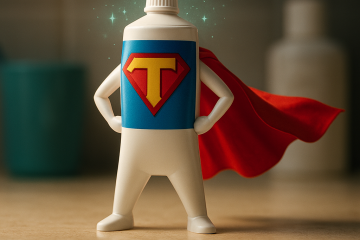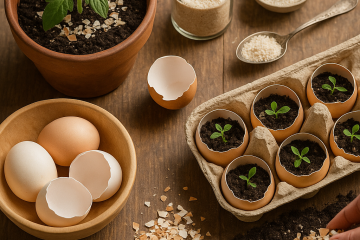
paying off high interest debt with savings
We use a common sense approach to prepping; it’s a way of life for us.
I am all about practical preparedness. Because my husband and I live the art of practical preparedness, we have a great life. We are so used to our way of life that it is normal to us. We have our yearly routine that we do to maintain a level of preparedness at all times. We are constantly working on prepping. Every time we use up our food storage we replace it so we always have a stockpile.
In our community I am considered one of the experts on preparedness. I teach classes on it in my local church and at retail stores that specialize in food storage. We have no fear of the future events because we know we have done everything we can to be as prepared for ourselves as well as our children.
I believe we are in a recession and headed for a depression worse than the Great Depression during World 2. I believe people will be out of work and starving. Homes will be foreclosed on and people will be on the streets with nowhere to go. The houses will be boarded up just like they did in the great depression. Those of us that have our homes paid off and have prepared with food, water, fuel, clothing, etc… will be helping others. There are many devastating natural disasters happening right now as well as will be in the future such as tornados, hurricanes, tsunamis, earthquakes, weather changes, and our government hanging by a thread. I believe the government programs that bail people out in hard times will be spent. Disability, welfare, social security and other government programs will be gone. People wont know what to do and it will cause chaos and pandemonium. The natural disasters will be one right after another until there is no relief money to help anyone. We will be on our own to help our families, neighbors, and friends. Those of us that survive will band together to assist our communities.
My husband and I both work and that is why we focus our extra money on our preparedness projects. We choose one major project every year and focus on it until it is done. The following paragraphs will give you a good insight into our daily lives and what we do year round to prepare. This is who I am and what I believe in.
I have been a prepper since 1989. About 22 ½ years.
I majored in Home Economics Education with a minor in Food Science and Nutrition from Brigham Young University in Provo Utah. I loved the old fashioned art of homemaking; such as cooking, canning, dehydrating, making bread, growing a garden, having chickens and living off the land. I started right away making a career for myself teaching these skills. I got into purchasing food in bulk and grinding my own wheat. I learned the frugal art of cooking from scratch and saving money. I love the feeling of getting back to my roots, similar to how my grandparents lived.
We live providently. When I refer to myself, I am also referring to my husband and my children. Most of my friends and relatives live a similar lifestyle so we have support. I was talking to my husband about prepping and he asked me, what is prepping? It seems it is a new buzzword for preparing for disasters or hard economic times. I am going to list all the things that my family is doing to be prepared.
We are getting out of debt and staying out of debt. The most important thing we have done is get out of debt. After all the research I have done on banks and the interest they charge, I realized that our money market account and savings were never going to increase at the same rate as the interest the bank was taking out for our loans. I realized also that we need to be borrowing from ourselves instead of the bank, then we can pay ourselves back and we earn the interest. We are money ahead that way. So we cashed out our money market certificates and savings and we paid the highest interest-bearing debts first.
I came to the conclusion that we had our savings in the bank and we also had our loan at the same bank. The bank was taking our savings and loaning it back to us and then charging us large amounts of interest. All of a sudden it dawned on me that this was not smart. So we used our savings and paid the high interest bearing loans first, and now we are making the same payments only to ourselves and we keep the interest for ourselves. That is how we get ahead of the money game.
We had to sell some of our assets to accomplish our prepping goals. I have put some recreational land that we own up for sale. If it sells, I will put the extra money towards prepping projects. My husband and I made a pact with each other that we will not use our credit cards for any purchase unless it is a debit and we have the extra money saved up for that purchase. We plan ahead and never get in trouble with credit card debt.
Our home is paid for and we are not a slave to a mortgage company. It feels so good to be debt free on our home and know that we won’t be kicked out if times get tough and we get into financial trouble. We also save up the property tax money each month so that in November when property taxes are due we have the money and it is not a burden on us.
We have a three-month supply of cash on hand (not in the bank) to pay bills just in case the banks shut down or have no funds. It is good to have small bills and coins for smaller purchases. Saving enough money for emergency bill paying takes time. We are frugal and try to save money wherever we can. We pay cash for vehicles and other purchases. If we don’t have the money, we don’t buy it.
We grow a garden every year.
We are avid gardeners. Every spring we grow a garden. My husband grew up on a farm and learned to milk cows at an early age. He would get up by 6 a.m., do his chores, milk the cows and then go to school. His father was an onion farmer. They also grew corn to sell at the farmers market so the children could have money for school clothes. We grow a lot more food than we need. However, I have tried to scale down and it hasn’t worked as well, so we give a large amount of food away to our family and friends. We like to grow plants from non-hybrid seeds so we can save them from year to year and have a never-ending supply.
My Husband Tilling the Garden By Hand
I bottle and dry excess fruits and vegetables. During harvest time I bottle or put up fruits and vegetables. I make things like salsa, pickles, beats, broccoli, squash, soups, apricots, peaches and pears. We enjoy eating the food we grow all year. I also like to dehydrate the excess produce that we have in our garden. I keep a dehydrator going all the time during harvest time. I make sun-dried tomatoes, zucchini chips, dried onions, and dried fruit slices such as peaches and pears, raisins, plums and apples. I make fruit leather with a mixture of fruits blended into a puree. I have an herb garden that we use to grow fresh herbs for cooking. I dehydrate them to make herbal seasonings.
We have a year-round greenhouse. We have a year-round greenhouse that we start all our seedlings in and grow food in year round. It contains an 800-gallon water tank that helps keep the greenhouse from freezing or overheating. We have fish in the tank all year. If necessary we could grow fish to eat. We are planning to grow Tilapia to eat, that is one of our future projects. We love our greenhouse.
We raise chickens and other animals. We live in the city limits of a small rural community. The entire town is only one mile long, and the population is 2,500. We are allowed to have farm animals on our property. Many of my neighbors raise horses, cattle, chickens, rabbits, pigs and goats. People raise animals for meat as well. The county fair is full of them waiting to be sold to the lucky bidder. We purchase meat from the local ranchers in the area. My husband and I have chickens. We collect the eggs every morning and eat them fresh for breakfast. My husband believes that we are healthier because of the free-range fresh eggs he eats.
We store a year’s supply of food. Because of the religious beliefs of our church and community, most people in my community and in the state of Utah store enough garden seeds, food, water, clothing, bedding, fuel, wood, emergency supplies and camping gear to be prepared for an emergency of some sort. I am the queen of food storage. I have enough to supply an army. I keep it in different locations for security reasons. I stockpile a lot of easy-to-make meals that can be cooked by adding water and bringing to a boil. These include things such as soup mixes and premade meals. I also store bulk foods like rice, dried fruits vegetables, wheat, powdered milk, beans, honey, bread baking supplies and all the necessary ingredients to make soup and bread.
Rolling shelves I had made to fit in my pantry.
Bulk dehydrated food stored at a constant temperature of 45 degrees year round.
I store bulk food such as rice, wheat, beans and legumes in buckets. The temperature stays constant at 45 degrees all year in this basement.
I keep my every day food supplies in a storage room that is well-insulated above my root cellar. It never freezes or gets too hot.
We have a root cellar. My husband built our root cellar. It is a cement room similar to a basement, only smaller. It is about 10 feet deep and has a stairway leading to the room. We keep all our winter vegetables in that root cellar: Carrots, onions, potatoes, squash and apples all store well throughout the winter. This room stays around 45 degrees year round. There is a building on top of the root cellar in which we keep buckets of dehydrated food. Our root cellar can double as a shelter from a tornado, which we had in our town a few years ago.
We have a wood-burning stove. A wood-burning stove is a necessity if the power goes off. We have wood to build a fire in the stove to heat our home and stay warm. The top of the wood-burning stove is flat so we can boil water in a pot or even cook simple foods on the top of the stove. These stoves will heat entire rooms. If our power goes off in the middle of the winter, we can shut the doors to rooms that are not being used and just heat the part of the house that is absolutely necessary. We purchased the stove and are in process of finding a place to hook it up in our home.
We built an outdoor fireplace that we could use to cook in if we had to. It is on our patio and it is nice to just relax by the fire on chilly nights. We also have a barbeque grill that uses propane. We store extra bottles of propane so we could use it if needed.
We have camping and evacuation equipment. We have a special shed on our property in which we keep all our camping, hiking, snowshoeing equipment. We have plastic totes full of Mountain House Foods and GoFoods pre-made meals. We keep tents, sleeping bags, cots, warm clothing (gloves, wool socks, pants and hats), extra bedding, wool blankets, kerosene lamps, Dutch ovens and a Sun oven in this evacuation and camping equipment shed.We have alternative heating and lighting sources as well.
Extra fuel
We keep cans of extra gasoline in case we need to take off somewhere. It is a good idea to keep the vehicles full of gas at all times. We have fuel for all the Coleman lanterns, and oil lamps that we store. We have propane tanks for outdoor cooking and alternative heat.
We have guns and ammo. We live near the mountains and if we needed to hunt for wild game, we could.
72 hour bug- out packs
These packs include everything we would need if we had to grab and go or bug out somewhere.
We keep our 72-hour packs in this shed along with our portable water filters.
We have an outhouse on our property. Our house sits on about a half-acre plot of land. My husband fixed up an old outhouse that was on the property when we moved here 25 years ago. The outhouse has a door on it for privacy. It has a hole dug in the ground about four or five feet deep and has a wooden box built on top of the hole. The wooden box has a hole in the top with a toilet seat secured over the hole. We use an enzyme and bacteria product called Bio Clean to sprinkle into the hole and eliminate human waste and smells.
We have a 185-gallon water tank in our shed. Water is the most important item we have. Without water we won’t live long. We keep a 185-gallon tank in the shed where our camping gear is stashed. We have smaller 5-gallon containers to fill from the larger one.
Future projects
We hope to get some kind of solar power in the future. We would like to live off the grid and be totally self-sufficient. Next year we might expand our garden to increase our food production, teach others to do what we have done and help more people prepare. We want to install our wood-burning stove in the house, and we want to grow tilapia fish in our greenhouse to eat.
I hope this inspires others to start prepping now. My advice is to take it one project at a time, do not go into debt to do it. If you do not have the money to prepare, get your creative juices flowing and come up with a second or third income that is dedicated solely to prepping. Every year we decide what project we want to work on next. We consider prepping to be a great way of life. We are debt free and we spend our extra money on our projects. We eat healthy year round, which is a great blessing in our lives. I love my way of life.
P.L. UT
Join us on Facebook!
Voting is closed



3 Comments
Rs Mom · April 17, 2012 at 3:21 am
Wow!
Deborah · April 17, 2012 at 11:46 am
amazing…We are planning the same way but on a smaller scale…You got my vote
dianne · April 20, 2012 at 6:19 pm
I hope this one wins. It makes me tired just thinking about being this prepared.
Comments are closed.